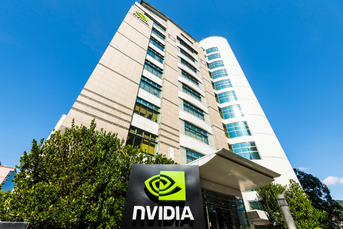Active managers brace for shrinking assets and profits

Now top executives at some of the largest fund companies are warning that a reckoning is coming.
Even after the shock of the financial crisis, managing other people’s money remained a pretty great business. While banks shed jobs, employment at the largest publicly traded asset managers rose about 20% from 2008 to 2015, according to data compiled by Bloomberg. Now top executives at some of the largest fund companies, including Larry Fink at BlackRock and Gregory Johnson at Franklin Resources, are warning that a reckoning is coming.
The pain is focused on companies that emphasize active management — picking stocks and bonds in an effort to beat the market. Those companies haven’t fared well compared with rivals offering cheaper funds that mainly track indexes. Fund executives envision a future of shrinking assets, lower profit margins, and more mergers as companies try to adapt.
“Large firms are talking to large firms,” says Joseph Sullivan, chief executive officer of fund company Legg Mason. “There are a lot of conversations going on at high levels.”
Several companies have trimmed jobs recently. Pacific Investment Management, whose Pimco Total Return was once the world’s largest mutual fund, cut its workforce by 3%, or 68 people, after assets declined by a quarter from the peak three years ago. “Pimco constantly adjusts its resources to capitalize on changing markets and investment opportunities,” spokesman Michael Reid said in an e-mailed statement.
GMO, known for the contrarian views of co-founder Jeremy Grantham, has cut about 10% of its 650-person staff in a retrenching that followed a sharp decline in assets. Tucker Hewes, a spokesman for GMO, declined to comment.
Over the past five years passive funds, which mimic indexes, attracted a net $1.7 trillion in the U.S., while active funds saw a slight outflow. The active managers haven’t been able to show they deliver a performance edge for their higher fees: In the five years ended in December, only 39% of actively managed equity mutual funds beat their benchmark indexes, according to Morningstar. Bond managers haven’t fared much better. In the past two calendar years, three-quarters of taxable bond funds trailed the market averages.
“The reality is that indexing is taking over,” Franklin CEO Johnson told the Financial Times in early June. Equity index funds charge their owners as little as 0.05% of assets each year, compared with a weighted average of 0.82% for active stock funds.
Franklin, a big player in international stock and bond funds, cut 1% of its global staff of about 9,400 in February. The firm suffered redemptions of more than $20 billion in each of the last three quarters. Its best-known fund, the $48 billion Templeton Global Bond Fund, underperformed similar ones over the past year.
Mr. Fink, who runs the world’s largest money manager, with $4.7 trillion under management, said at a conference on May 31 that the shift into indexing will not only continue but will be “massive.” He cited new rules from the U.S. Department of Labor that require financial advisers recommending investments for retirement accounts to put their clients’ interests first. That could push advisers away from recommending so-so products that happen to offer sales commissions, and toward lower-cost investments like index funds.
BlackRock would be relatively well-positioned for such a shift, since it offers a mix of active funds and index-based products such as the iShares exchange-traded funds. Still, the firm has cut about 400 jobs, or roughly 3% of its 13,000 employees, people with knowledge of the matter said in March. It will continue to hire in key areas and expects to end the year with a higher head count, one of the people said at the time.
Sean Healey, CEO of Affiliated Managers Group, which owns a collection of boutique mutual fund and hedge fund companies, says consolidation won’t solve the industry’s fundamental problem of performance. “Just the opposite is true,” he says. Having to put more money to work often makes managers less nimble.
Peter Kraus, CEO of AllianceBernstein Holding, said in an interview on Bloomberg TV in June that “it’s pretty clear that active managers have not performed above their benchmarks to any great degree.” He estimated assets in actively managed funds may have to shrink by as much as 30% to restore their ability to beat indexes. For a business based on regularly collecting a little slice of those assets, that cure would hurt more than the disease.
Learn more about reprints and licensing for this article.








